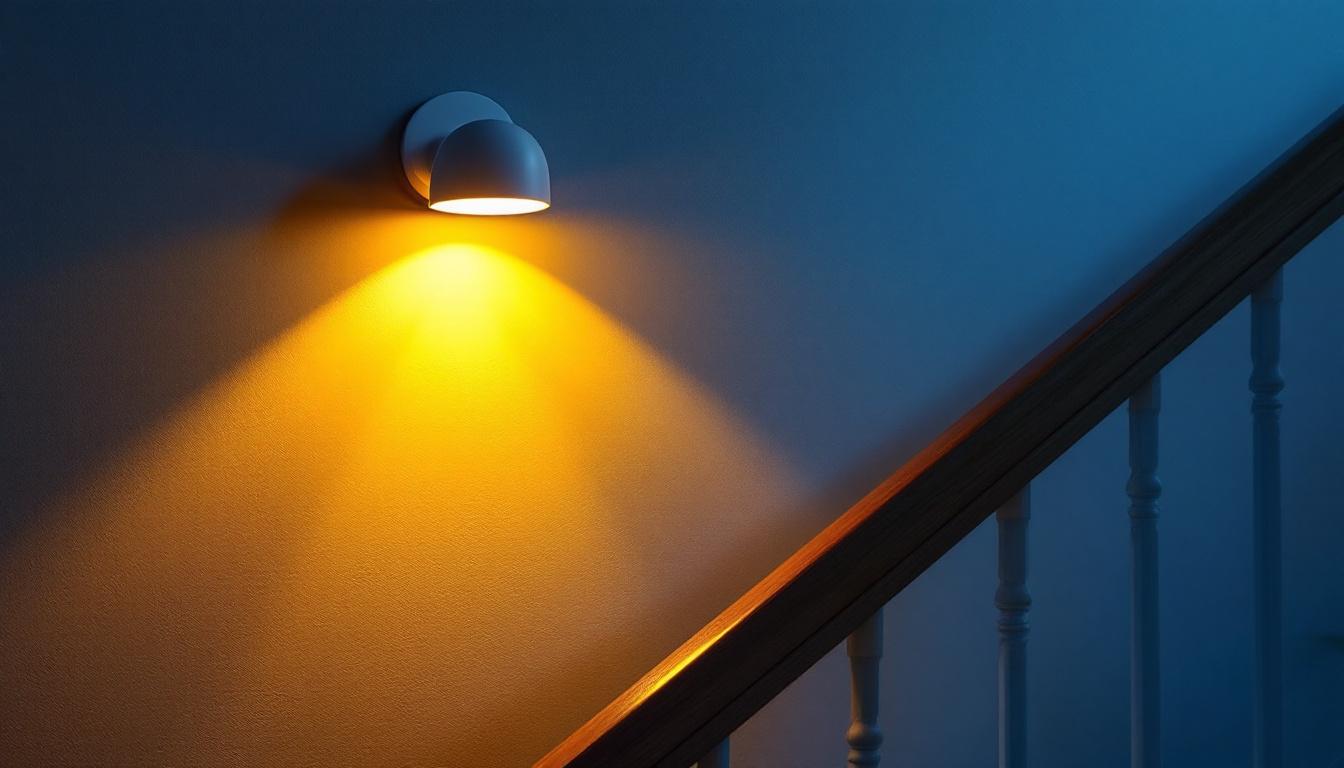
For lighting contractors, selecting LED lamps from reputable manufacturers is a critical component of delivering quality projects that meet client expectations and regulatory standards. The LED lighting market has evolved rapidly, with manufacturers offering a wide range of products that vary significantly in terms of quality, efficiency, and lifespan. As the demand for energy-efficient solutions continues to rise, the competition among manufacturers has intensified, leading to innovations that not only enhance performance but also drive down costs. This dynamic environment means that contractors must be vigilant in their product selections to ensure they are providing the best value to their clients while adhering to industry standards.
Awareness of current market trends and technological advancements is essential. LED lamps now boast higher luminous efficacy, improved color rendering indexes (CRI), and enhanced durability compared to earlier models. These improvements not only reduce energy consumption but also contribute to better lighting quality, which is crucial in commercial, residential, and industrial applications. Furthermore, the integration of advanced optics and lens technology has allowed for more precise light distribution, minimizing glare and maximizing illumination efficiency. This is particularly important in spaces where visual comfort and safety are paramount, such as in retail environments and workplaces.
Contractors should stay informed about the latest innovations such as tunable white LEDs, smart lighting integration, and advancements in thermal management. Understanding these developments helps in recommending the most suitable products to clients, ensuring both satisfaction and compliance with energy codes. Additionally, the rise of smart lighting solutions has introduced a new layer of functionality, allowing for customizable lighting scenarios that can adapt to the needs of users throughout the day. This not only enhances the user experience but also promotes energy savings through automated controls and occupancy sensors, making it an attractive option for modern installations.
Moreover, the sustainability aspect of LED technology cannot be overlooked. As consumers become increasingly environmentally conscious, the demand for eco-friendly lighting solutions has surged. Many manufacturers are now focusing on creating products that are not only energy-efficient but also made from recyclable materials, further reducing their carbon footprint. This shift aligns with global efforts to combat climate change and encourages contractors to consider the environmental impact of their lighting choices. By advocating for sustainable practices and products, contractors can position themselves as leaders in the industry, appealing to a growing demographic that prioritizes green solutions.
Product quality is paramount when choosing LED lamp manufacturers. Lighting contractors should prioritize manufacturers whose products comply with recognized certifications such as UL, DLC, Energy Star, and CE. These certifications guarantee that the lamps meet stringent safety, performance, and energy efficiency standards.
Furthermore, verifying the consistency of product quality through sample testing or pilot installations can prevent costly failures or client dissatisfaction. Reliable manufacturers often provide detailed technical datasheets, warranty terms, and third-party test reports, which serve as indicators of their commitment to quality. Additionally, manufacturers that invest in continuous improvement and innovation often showcase their latest advancements in product design and technology, which can lead to enhanced performance and longevity of the LED lamps.
Moreover, it is beneficial to consider manufacturers that engage in sustainable practices, such as using recyclable materials in their products or implementing eco-friendly production processes. This not only reflects a commitment to quality but also aligns with the growing demand for environmentally responsible solutions in the lighting industry.
Energy efficiency is one of the primary advantages of LED technology. Lighting contractors should evaluate manufacturers based on metrics such as lumens per watt (lm/W), color temperature (measured in Kelvins), and CRI. Higher lumens per watt indicate better energy savings, while appropriate color temperature and CRI ensure the lighting suits the intended environment.
For example, office spaces typically benefit from cooler white light (4000K-5000K) with a CRI above 80 for clarity and focus, whereas hospitality settings may require warmer tones (2700K-3000K) for ambiance. Selecting manufacturers that offer a broad range of options allows contractors to tailor lighting solutions effectively. Additionally, the integration of smart technology in LED lamps, such as dimming capabilities and compatibility with building management systems, can further enhance energy efficiency and provide users with greater control over their lighting environments.
Contractors should also consider the longevity of the LED lamps, as a longer lifespan contributes to reduced maintenance costs and less frequent replacements. Manufacturers that provide detailed lifecycle analyses can help contractors understand the total cost of ownership associated with their products, making it easier to justify investments in higher-quality options.
Long-term reliability is a crucial consideration. Manufacturers offering comprehensive warranties—often ranging from three to five years—demonstrate confidence in their products. Contractors should inquire about warranty coverage specifics, including what constitutes a defect and the process for claims.
Equally important is the availability of after-sales support. Manufacturers with responsive customer service, technical assistance, and accessible replacement parts can significantly ease project execution and maintenance phases. This support reduces downtime and enhances client trust. Furthermore, manufacturers that provide training resources, installation guides, and troubleshooting tips can empower contractors to address issues more effectively, leading to smoother project management and improved client satisfaction.
In addition, establishing a good relationship with manufacturers who offer ongoing support can lead to valuable insights into product updates and emerging technologies, which can ultimately benefit contractors and their clients in the long run. This partnership approach fosters a collaborative environment that can drive innovation and improve overall project outcomes.
Establishing open lines of communication with manufacturers fosters collaboration that benefits both parties. Lighting contractors can gain insights into product innovations, receive training on installation best practices, and access promotional materials that aid client presentations.
Manufacturers, in turn, benefit from contractor feedback that can inform product improvements and market strategies. Engaging with manufacturers through trade shows, webinars, and industry forums also helps contractors stay ahead of trends and regulatory changes. This proactive approach not only enhances the contractor’s knowledge base but also positions them as thought leaders in the industry, capable of advising clients on the latest technologies and energy-efficient solutions. Regular check-ins and updates can further solidify these relationships, ensuring that both parties are aligned on goals and expectations.
Contractors managing large-scale projects should explore volume discount opportunities offered by manufacturers. Bulk purchasing can reduce costs and improve project margins, which is particularly advantageous in competitive bidding environments.
Additionally, some manufacturers provide custom lighting solutions tailored to specific project requirements, such as unique form factors, integrated sensors, or specialized optics. Collaborating early in the project design phase allows contractors to leverage these capabilities for enhanced client satisfaction. Furthermore, establishing a strong partnership can lead to exclusive access to new products or limited-edition lines, giving contractors a competitive edge. The ability to offer bespoke lighting solutions not only meets client needs more effectively but also enhances the contractor’s reputation as a go-to resource for innovative lighting designs, ultimately driving more business opportunities and referrals.
Lighting contractors must ensure that the LED lamps they specify comply with local, national, and international regulations. These may include energy codes, environmental directives, and safety standards that vary by region. Non-compliance can lead to project delays, fines, or the need for costly retrofits.
Manufacturers with a strong compliance track record provide documentation and certifications that simplify the approval process. Contractors should verify that products meet or exceed minimum efficiency requirements and are free from hazardous materials such as mercury.
LED technology inherently supports sustainability goals by reducing energy consumption and extending lamp lifespan. Lighting contractors can further promote sustainability by selecting manufacturers committed to environmentally responsible manufacturing processes, such as using recyclable materials and minimizing waste.
Additionally, integrating LED lamps with smart controls—such as occupancy sensors, daylight harvesting, and dimming capabilities—maximizes energy savings. Contractors should partner with manufacturers who offer compatible control systems or collaborate with third-party providers to deliver comprehensive energy-efficient lighting solutions.
Before specifying LED lamps for a project, contractors should conduct thorough product evaluations, including photometric testing and real-world performance assessments. This approach helps verify manufacturer claims and ensures the lighting meets the project’s functional and aesthetic requirements.
Field testing under actual installation conditions can reveal factors such as glare, color consistency, and thermal performance that may not be evident from datasheets alone. Engaging with manufacturers to obtain samples or demo units can facilitate this process.
The LED lighting industry is dynamic, with frequent updates to standards, technologies, and best practices. Lighting contractors should invest in continuous education through professional associations, certification programs, and manufacturer training sessions.
Staying informed enables contractors to provide clients with cutting-edge solutions, anticipate regulatory changes, and maintain a competitive edge in the marketplace.
Many LED lamp manufacturers offer marketing support, including brochures, case studies, and digital content that contractors can use to educate clients and promote projects. Utilizing these resources enhances professionalism and client confidence.
Manufacturers may also provide training on product installation, maintenance, and troubleshooting. Participating in these sessions improves technical expertise and reduces the likelihood of installation errors.
For lighting contractors, partnering with reputable LED lamp manufacturers is essential to delivering high-quality, efficient, and compliant lighting solutions. By understanding the market landscape, evaluating key product criteria, fostering strong manufacturer relationships, and emphasizing sustainability and compliance, contractors can enhance project outcomes and client satisfaction.
Implementing practical strategies such as thorough product testing, continuous education, and leveraging manufacturer support further strengthens contractor capabilities. Ultimately, informed collaboration with LED lamp manufacturers positions lighting contractors for success in an increasingly competitive and technology-driven industry.
Ready to elevate your lighting projects with superior LED lamps that promise quality, efficiency, and value? Look no further than LumenWholesale. Our extensive selection of spec-grade lighting products is designed to meet the highest industry standards, giving you the confidence to deliver exceptional results to your clients. With unbeatable wholesale prices and the convenience of free shipping on bulk orders, LumenWholesale is your go-to source for premium lighting without the premium price tag. Discover wholesale lighting at the best value and make the smart choice for your lighting needs today.

Discover why understanding light bulb base sizes is crucial for lighting contractors.

Discover the ultimate metal halide to LED conversion contractor checklist to boost energy efficiency, reduce costs by up to 50%, and ensure seamless lighting upgrades..

Illuminate your stairwell projects with precision using our comprehensive checklist tailored for lighting contractors.

Explore the intersection of patriotism and sustainability in “Lighting A Flag: Its Impact on Energy Efficiency.” Uncover how innovative lighting solutions can illuminate national symbols while conserving energy and reducing costs..